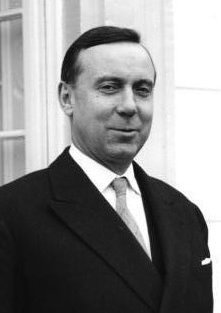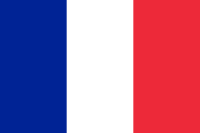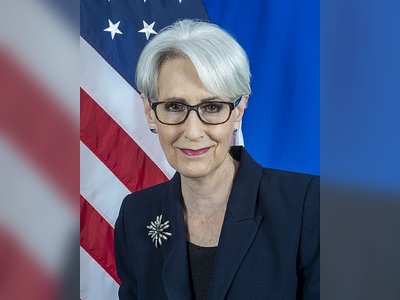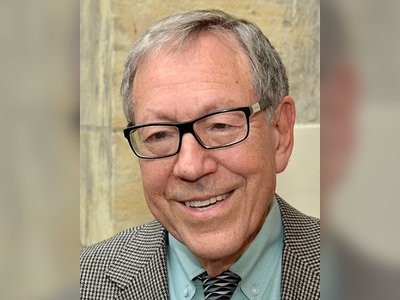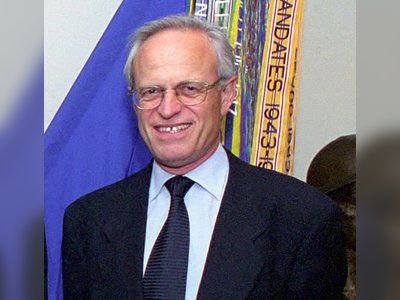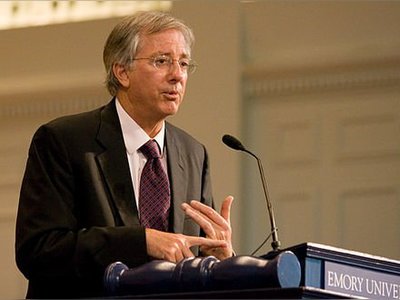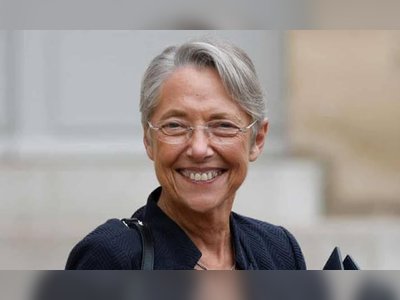Michel Debré: Architect of Modern France
Michel Debré (January 15, 1912 – August 2, 1996) was a prominent French Gaullist politician of Jewish descent, hailed as one of the founding fathers of modern France. He served as the first Prime Minister of the French Fifth Republic under President Charles de Gaulle from 1959 to 1962. Notably, he was the fourth Jewish Prime Minister in French history.
Early Life
Michel Debré was born in Paris to the renowned Jewish physician, Professor Robert Debré, considered a pioneer of modern pediatrics. He was the grandson of Simon Debré, a community leader in the Nièvre region.
Debré initially attended the "Lycée Montaigne" and later the "Lycée Louis-le-Grand" before earning a degree in political science from the Paris Institute of Political Studies (today known as Sciences Po) and a law degree from the University of Paris.
In 1939, Debré served as an officer in the French cavalry during World War II. He was captured during the conflict with Germany but managed to escape after several months. Following the war, he became involved in French politics and served in various capacities, including as a legal advisor.
Political Career
In February 1943, Debré joined the French Resistance and became associated with General Charles de Gaulle. During the summer of 1943, while de Gaulle was in London, Debré was tasked with selecting a list of government officials to replace the Vichy regime after its liberation. Debré served as a minister in the Provisional Government of the French Republic from September 1944 to December 1945.
During the Fourth Republic, Debré initially supported the French Democratic and Socialist Union but eventually shifted his allegiance to the Radical-Socialist Party, guided by General Charles de Gaulle's counsel that, "With the Radicals, you will find the last remnants of the meaning of 'state.'" Subsequently, he was elected as a senator for Eure-et-Loir, serving from 1948 to 1958.
In 1955, Debré became the Senate's Foreign Affairs spokesman. In 1958, he was appointed Minister of Justice in Charles de Gaulle's government and played a crucial role in drafting the constitution of the Fifth Republic. Following its approval, Debré was appointed as the first Prime Minister of the Fifth Republic.
Debré's government was comprised of Gaullists, Catholics, and conservatives, deliberately excluding socialists. In April 1962, he resigned from his position. Officially, his resignation had been planned in advance, but according to some sources, it was due to disagreements over the dissolution of parliament and the call for new elections after a successful referendum just prior to his departure.
Allegedly, Debré, a key figure in the Gaullist party, sought to capitalize on the referendum's success by increasing his party's influence in the parliament, but de Gaulle refused to dissolve the parliament and call for new elections.
In November 1962, Debré's Gaullist party won a significant victory, but he failed to secure a parliamentary seat in a highly competitive district against a socialist candidate. Consequently, he was not included in Pierre Pflimlin's new government in December 1962.
Later Political Career
In 1963, Debré was elected to the French National Assembly as a representative of Réunion. In January 1966, he rejoined the government as Minister of Economy and Finance, effectively becoming the second-in-command after the Prime Minister. In March 1967, Debré was re-elected to parliament, and in 1968, he became the Minister of Foreign Affairs.
In June 1969, contrary to his wishes, Debré was transferred to the position of Minister of Defense, which he held until April 1973 when he chose not to join the new government of Pierre Messmer.
As Foreign Minister, he signed several public statements opposing the Pan-Arab movement. Debré was known for his staunch conservatism within his party and his vehement opposition to Valéry Giscard d'Estaing, the liberal leader.
Presidential Bid and Later Life
Debré ran for the French presidency in 1981, receiving only 1.65% of the votes. Even after retiring from active politics, he continued to voice his opinions on contentious issues in France.
In 1988, he was elected a member of the French Academy. Later in life, Debré converted to Catholicism.
Michel Debré was the fourth Jewish Prime Minister of France, preceding him were Léon Blum (1936–1937, 1938, 1945), René Mayer (1953), and Pierre Mendès France (1954–1955). Over two decades later, Laurent Fabius (1984–1986), also of Jewish heritage, served as the Prime Minister of France, although his parents had converted to Catholicism before his birth.
Debré had four children: entrepreneur Vincent Debré (born in 1939), journalist François Debré (1942), meteorologist and politician Bernard Debré (1944), and politician Jean-Louis Debré (1944).
- מישל דברהhe.wikipedia.org
